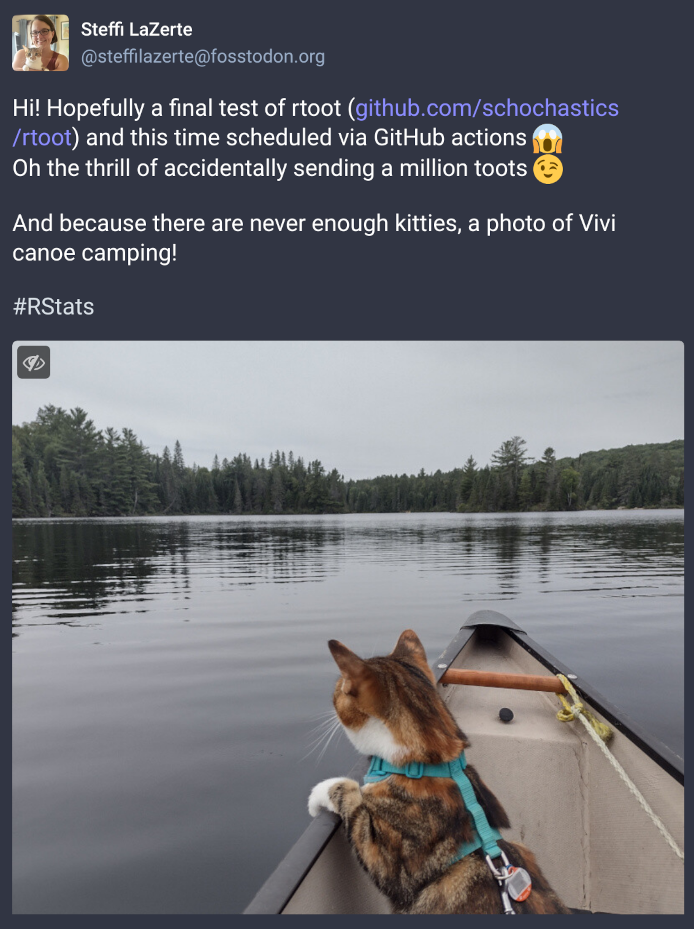You may have seen a neutered version of this post over at the LSE blog. This post below, however, puts the tiger in the tank, as it was enhanced by CatGPT: Maybe scholarly societies have taken “the instruction“follow the money!” a tad too literally?
Messaggi di Rogue Scholar

A lot of what I do as rOpenSci’s community assistant is related to social media.I check for posts about rOpenSci packages, invite people to share usecases,advertise upcoming events, as well as promotingnew packages which completed software peer review.
I’ve been thinking about something like an instance Community Pledge becoming commonplace. Mastodon instances tend to post rules, user expectations, a tiny bit of info about administrative practices. This helps cultivate the Mastodon region of the fediverse. But, and I don’t mean the following as criticism, most instances have not communicated what their administrative commitments to their community are.

Our lab is growing! In our Three Questions series, we’re profiling each of our members and the amazing work they’re doing. Today’s post features Asura Enkhbayar, a PhD student and data scientist at the ScholCommLab.

Our lab is growing! In our Three Questions series, we’re profiling each of our members and the amazing work they’re doing.

Our lab is growing! In our Three Questions series, we’re profiling each of our members and the amazing work they’re doing.

How much research shared on Facebook is hidden from public view? In this blog post, we highlight key findings from a new study investigating this question and what they mean for scholarly communications and altmetrics research.

With more than 2.2 billion active users—six times as many as Twitter—Facebook is by far the largest social media platform on the web today. Yet despite its popularity, studies investigating Facebook sharing have reported surprisingly low levels of user engagement with scholarly research on the platform. Are Facebook users really sharing fewer academic articles than Twitter users?

Looking Ahead to SCW18’s “How I Scicomm” Panel What does it mean to be a science communicator in 2018?

To tie in with this week’s Genomic Standards Consortium (GSC) meeting in Shenzhen, GigaScience is launching a call for submissions to a thematic series of discussion and research from the conference and wider community highlighting best practice in genomics research. As the 13th meeting of the GSC, the topic this year is “Genomes to Interactions to Communities to Models” – all areas key to the scope of the journal.